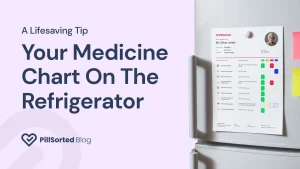Beginners Guide to Gut Health

The importance of gut health and the mind-gut connection has gone mainstream in recent years. While that increased awareness is great, what gut health really means and why ‘good bacteria’ matters is still a bit of a blurry subject. Moreover, expecting certain foods and products such a probiotics to overhaul gut health is unrealistic and obsessing over them is likely to do more harm than good.
That’s why we’ve put together this beginners guide to gut health. We want to help clarify what gut health is and to give you tips to safely help you nurture the trillions of bacteria that call your digestive track home.
In this post:
- What is the gut microbiome?
- What are good & bad bacteria?
- What are probiotics & prebiotics?
- Tips to supporting gut health
- Gut health pharmacy medicine tool kit
What is the gut microbiome?
Your gut microbiome is a vast and diverse community of microorganisms that inhabit your digestive tract. These bacteria, fungi, viruses, and other microbes play essential roles in digestion, nutrient absorption, boosting immune function, blood sugar levels and even mood regulation. Maintaining a balanced and diverse gut microbiome, including both beneficial and potentially harmful bacteria, is key to your overall health.
What are good & bad bacteria?
Good bacteria, also known as beneficial or probiotic bacteria, are microorganisms that live in your gastrointestinal tract. They play a crucial role in maintaining gut health. These bacteria belong to various strains, with some of the most well-known including Lactobacillus and Bifidobacterium species.
On the flip side, bad bacteria, also known as harmful or pathogenic bacteria, are microorganisms that can disrupt the balance of the gut microbiome and can contribute to various health problems including IBD, diabetes, and obesity. Some examples of bad bacteria commonly found in the gut include: Escherichia coli, Salmonella, Clostridium difficile, Helicobacter pylori, Campylobacter, and Shigella.
Unlike good bacteria, which promote gut health, bad bacteria can cause illness, inflammation, and digestive disturbances when they grow excessively. However, having some bad bacteria in the gut is a natural part of the microbiome. In short, bad bacteria are not a problem as long as they are kept in check by the presence of good bacteria .
What are probiotics & prebiotics?
Probiotics are microbes that you can add to the microbes already in your system. They are the ‘good bacteria’ in certain foods, such as yogurt, kefir, sauerkraut, kimchi, and kombucha, as well as in dietary supplements. Probiotics work by colonizing the gut with beneficial bacteria, a complex interplay which help maintain a healthy balance of microorganisms in the digestive tract.
Probiotics support digestion, aid in nutrient absorption, strengthen the gut barrier, and promote immune function. Additionally, probiotics have been studied for their potential to alleviate symptoms of gastrointestinal disorders such as irritable bowel syndrome (IBS), inflammatory bowel disease (IBD), and antibiotic-associated diarrhea.
Unlike probiotics which are microbes, prebiotics are specialized non-digestible fibers. But they too help the living microbes already in your system. Some foods that contain prebiotics are potatoes, chicory root, garlic, onions, asparagus, bananas, whole grains like oats, barley, and wheat, artichokes, and leeks. Once consumed, prebiotics pass undigested through your upper gastrointestinal tract and reach the colon, where gut bacteria ferment them. This fermentation process produces short-chain fatty acids, which provide energy for colon cells and contribute to overall gut health.
Tips to supporting gut health
- Eat a varied diet rich in fruits, vegetables, whole grains, lean proteins, and healthy fats. Aim to include a ‘rainbow of colours’ on your plate to help nourish good gut bacteria.
- Include fermented foods such as yogurt, kefir, sauerkraut, kimchi, and kombucha are rich sources of probiotics. These foods in your diet regularly can support digestive health.
- Include plenty of fiber-rich foods in your diet, such as fruits, vegetables, legumes, nuts, and seeds. Whole grains like oats, barley, and quinoa are also excellent sources of fiber.
- Drink plenty of water throughout the day. Water keep things moving smoothly through your digestive tract, preventing constipation and promoting optimal nutrient absorption.
- Engage in regular physical activity. Exercise can enhance gut motility, helping to regulate bowel movements and prevent constipation.
- Manage Stress. The gut-brain connection is a two-way relationship, meaning that stress can influence gut health, and vice versa. Reduce stress with activities such as mindfulness meditation, deep breathing exercises, yoga, or spending time in nature.
- Get Quality Sleep. Quality sleep is crucial for overall health, including gut health. Aim for 7-9 hours of restful sleep each night.
- Consider supplements. Taking one supplement containing multi-vitamins and minerals can ensure that we receive a baseline of nutrients that might be missed in your daily diet.
Pharmacy medicines & supplements
Many of these gut health medicines and supplements are available over-the-counter, but you should consult with your healthcare provider before taking them. And be sure to adhere to the correct dosage.

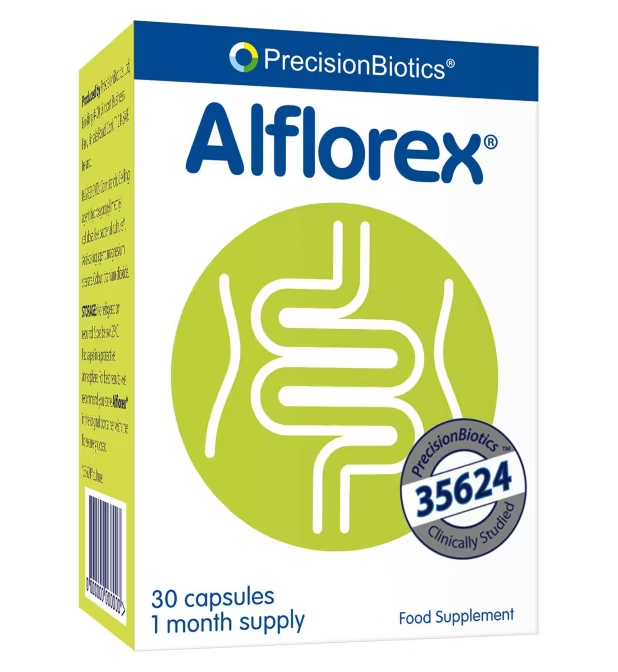
Alflorex Original Daily Gut Health Supplement – 30 Capsules
Alflorex Original Daily Gut Health Supplement helps support your digestive health.
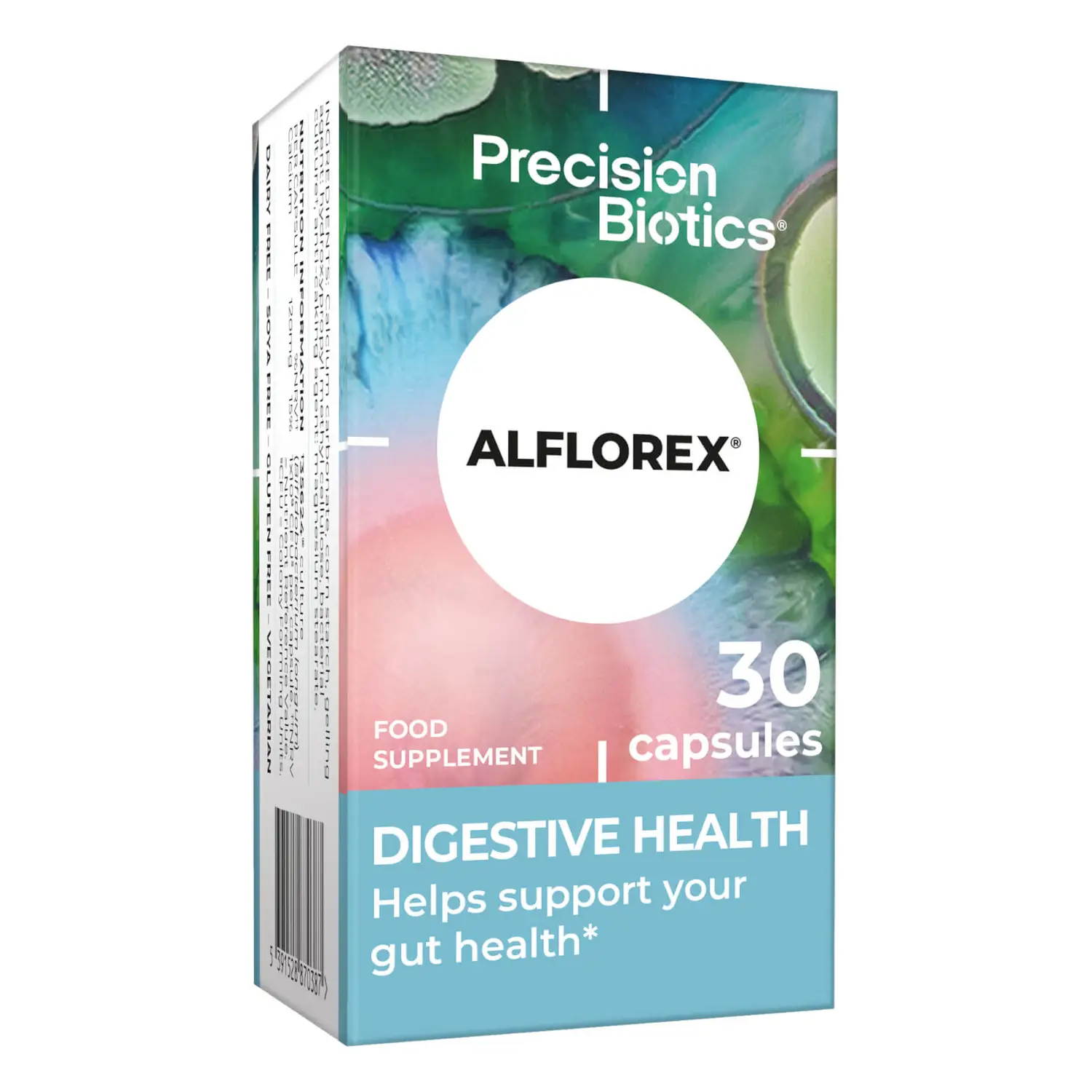
Alflorex Plus Calcium Daily Gut Health Supplement – 30 Capsules
Alflorex Plus Calcium Daily Gut Health Supplement helps support your digestive health.
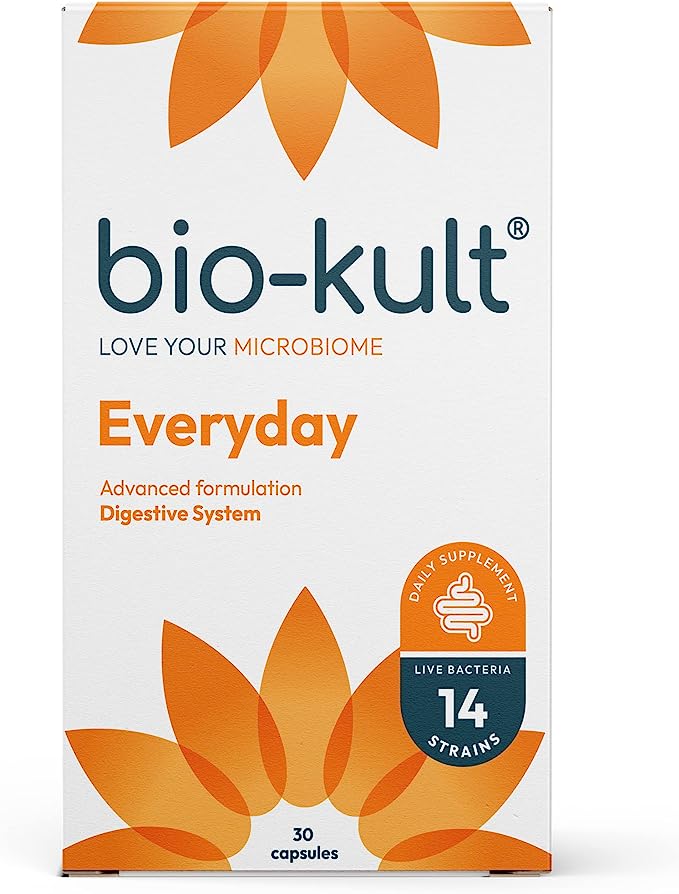
Bio-Kult Advanced Multi-Strain Formula – 30 Capsules
Bio-Kult Advanced Multi-Strain Formula is a dietary supplement designed to support digestive health. It contains 14 different strains of probiotics to promote normal digestive functions and is free of gluten, artificial colours, flavours, and preservatives. Additionally, it has been approved by the Vegan Society.
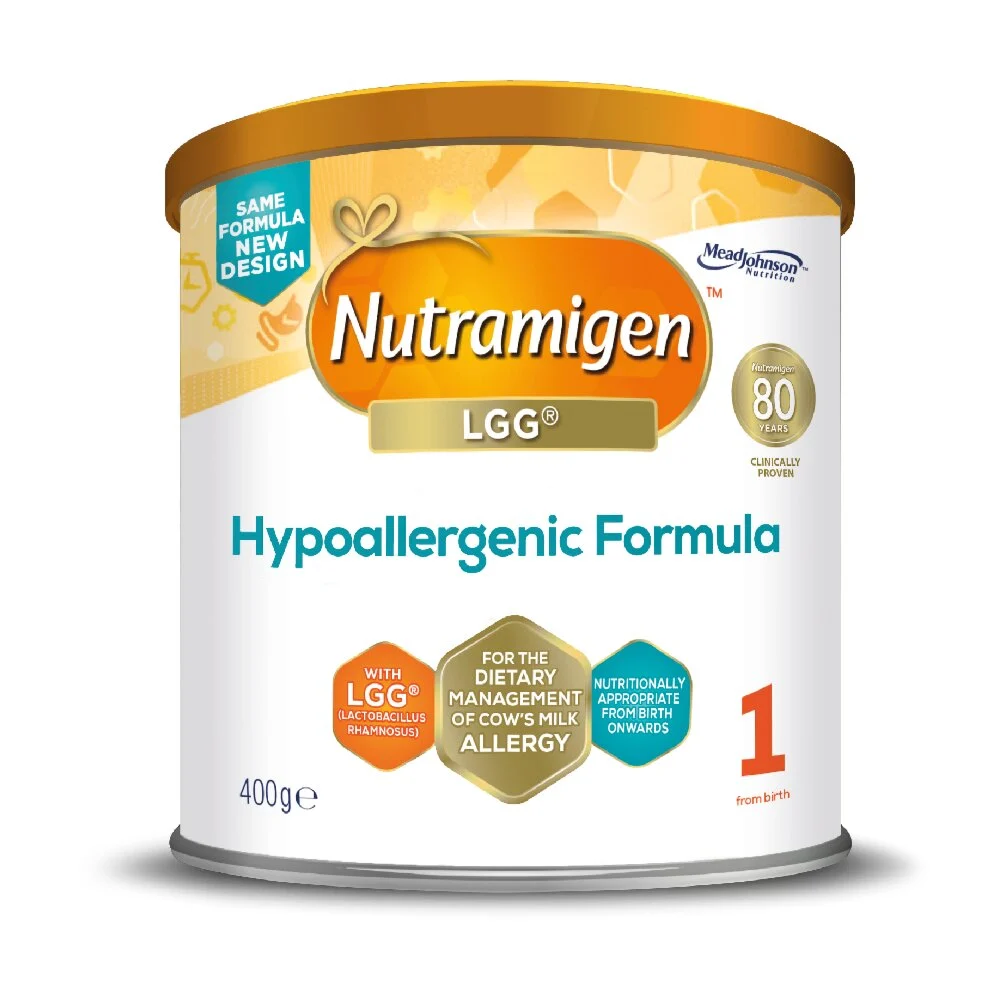
Nutramigen 1 With LGG – 400g
Nutramigen 1 hypoallergenic formula , with LGG is an eHCF (extensively hydrolysed casein-based formula) combined with the probiotic strain Lactobacillus rhamnosus GG (LGG) which is designed for the dietary needs of infants aged 2 weeks to 6 months and children with mild to moderate cows’ milk allergy.
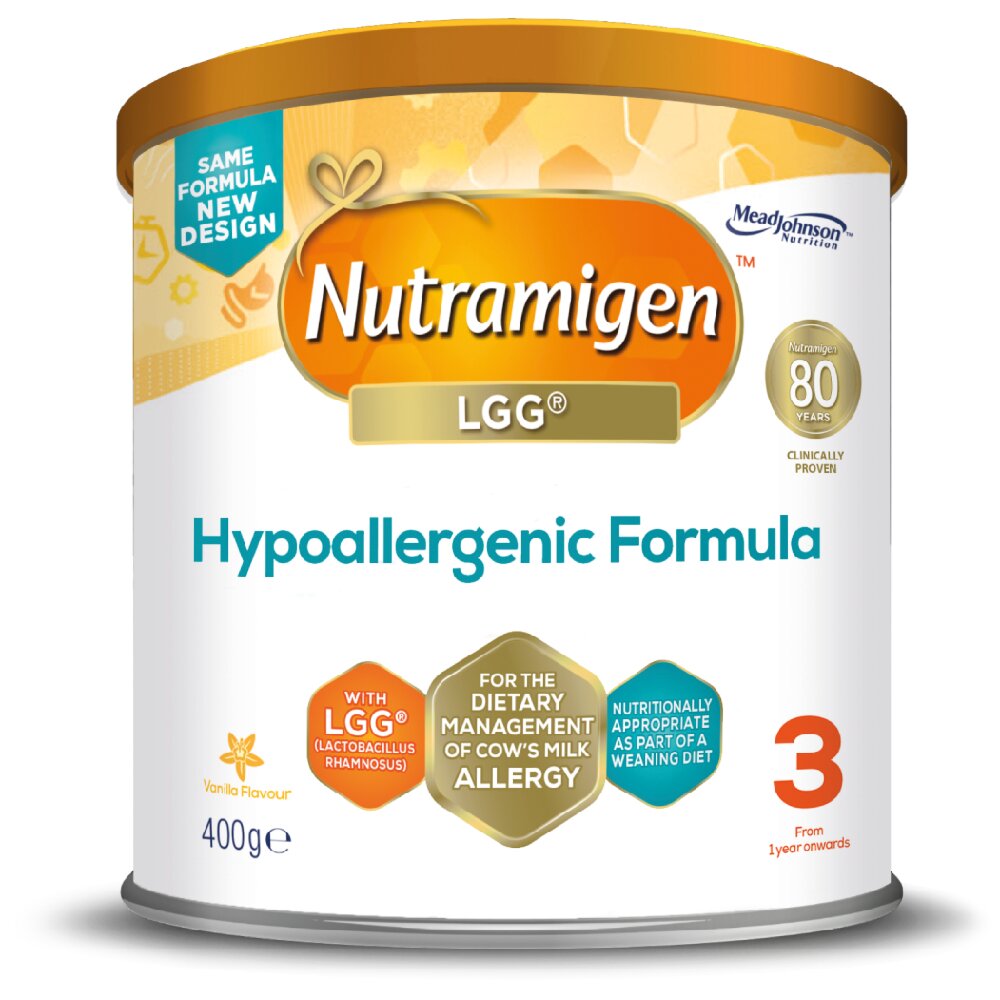
Nutramigen 3 With LGG – 400g
Nutramigen 3 with LGG is an extensively hydrolysed casein-based formula (eHCFs) specially formulated for the dietary management of infants aged 1 year and above with mild to moderate cows‚ milk allergy.
Gut health Dos & Don’ts
| Do | Don’t |
|---|---|
| Eat a variety of fruits, vegetables, whole grains, lean proteins, and healthy fats to provide your body with a wide range of nutrients and fiber. | Don’t eat sugary foods, refined carbohydrates, and processed foods. |
| Incorporate probiotic-rich foods such as yogurt, kefir, sauerkraut, kimchi, and kombucha into your diet to introduce good bacteria. | Don’t consume artificial sweeteners such as aspartame, sucralose, and saccharin. |
| Drink plenty of water throughout the day to maintain hydration and support optimal digestion, nutrient absorption, and gut function. | Don’t consume excessive amounts of alcohol. |
| Practice stress-reducing techniques such as mindfulness meditation, deep breathing exercises, yoga, or spending time in nature to help reduce stress. | Don’t use antibiotics unless necessary and prescribed by a healthcare professional. |
| Aim for 7-9 hours of quality sleep each night to support overall health and regulation of gut microbiota. | Don’t smoke or expose yourself to tobacco smoke. |
Main takeaways
- The gut microbiome comprises a diverse community of microorganisms residing in the digestive tract, including bacteria, fungi, and viruses. This ecosystem plays vital roles in digestion, nutrient absorption, immune function, and even mood regulation.
- Good bacteria, are essential for maintaining gut health and can be found in probiotic foods like yogurt, kefir, and fermented vegetables.
- Conversely, bad bacteria, such as Escherichia coli and Salmonella, can disrupt gut balance and contribute to health issues like inflammatory bowel disease (IBD) and obesity.
- A balance between good and bad bacteria is necessary for optimal health.
- Probiotics are live microorganisms that can be consumed through food or supplements to bolster the existing gut microbiome. They aid in digestion, nutrient absorption, and immune function, potentially alleviating symptoms of gastrointestinal disorders.
- Prebiotics are non-digestible fibers found in certain foods that nourish existing gut bacteria and contribute to overall gut health through fermentation.
- For gut health, adopt a varied diet rich in fruits, vegetables, whole grains, and lean proteins, along with fermented foods and fiber-rich options. Stay hydrated, engage in regular physical activity, manage stress, and prioritize quality sleep.
References
Kim, Y., et al. (2014). Aerobic exercise improves gastrointestinal motility in psychiatric inpatients
Roselli, M., et al. (2021). Colonization Ability and Impact on Human Gut Microbiota of Foodborne Microbes From Traditional or Probiotic-Added Fermented Foods: A Systematic Review
Zhang, Y., et al. (2015). Impacts of Gut Bacteria on Human Health and Diseases
PillSorted
PillSorted is a full service pharmacy that delivers trusted pharmacy products, over-the counter medications, and the prescriptions your doctor recommends, directly to your door. Your PillSorted pharmacist is happy to answer your questions about weight loss and potential treatment options at 0333 4050380 or help@pillsorted.com.

All third-party trademarks (including logos and icons) referenced by PillSorted remain the property of their respective owners. Unless specifically identified as such, PillSorted’s use of third party trademarks does not indicate or imply any relationship, sponsorship or endorsement between PillSorted and the owners of these trademarks.





















